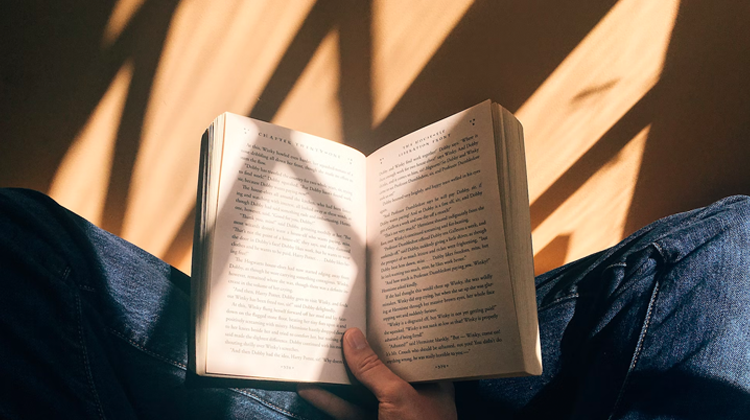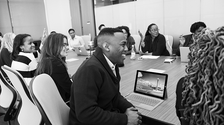When we learn a new language in a self-taught way, it is usual to focus on our speaking and listening skills; especially in languages that share very similar alphabets, reading and writing tend to be relegated, because their daily use is limited and as students, we don´t give it the importance it really deserves; added to the fact that most people learn another language for tourism reasons and for that the most basic level of reading and writing is perfect. So, one of the exercises that I consider the most complete to advance in learning is left aside because it is not the passion of many people.
What makes reading so special?
Reading in your native language is in itself a highly beneficial activity, it reduces stress, feeds your imagination, exercises your mind and improves your analytical skills, among many other qualities that change according to the type of reading, you can be informed, learn about interesting topics,
or have fun with fantastic stories. But when you read in your target language, to all those wonderful advantages we can add a few more: You acquire more and better quality vocabulary, improve spelling and grammar, learn different structures or phrases used for different types of communication, recognize the same words in different contexts, also you could improve pronunciation by reading aloud.
If we can count so many benefits, why not give it a try? The main reason is that we have not formed the habit of reading from the native language and we think about it as something boring or very difficult; but I assure you that if you do it the right way it will be the opposite, one of the most enriching and fun activities you can implement in your study routine.
How can I form the habit of reading?
Same as any other habit that we want to form in our lives, the most important thing is to establish clear and realistic objectives in accordance with us, in order to create a routine that lasts over time and is not something that we will leave aside at the first obstacle.
-look for a nice and quiet place
You are going to need a lot of concentration, so a quiet, illuminated, fresh and very calm place where you can make yourself comfortable is essential.
-set a reasonable time
Something realistic that you can fulfill, do not set yourself to reading for an hour a day if you have never done so before... maybe just 10 or 15 minutes; remember that quantity does not mean quality.
-be consistent
Once you have a suitable place and a fixed schedule in your agenda, remember that the plan is to be carried out and not to leave it in mere ideas; respect the time you set aside for reading, stop procrastinating and do it.
-be flexible
Hand in hand with constancy comes flexibility, do not judge yourself if one day you are busy and do not fulfill your routine, the important thing is that as soon as possible your resume... it is not the end of the world.
What to read?
Here we have two important things to take into account, your tastes and interests and the level you have in the learning language; because starting this activity ignoring these aspects only guarantees one thing... that you will give up. So first of all identify your reading level, (for this you can use an online test) and then your topics of interest, and based on that you can choose the ideal reading class for you; my advice is to follow the following level guide:
A1-A2 If you’re able to identify simple structures, you should read something easy and children’s books like mi abuelo es poeta de Toño Malpica, Fray perico y su borico de Juan Muñoz or any book written for little kids are perfect for you, because of the simply way these books are written or you could try with translations of classic stories as El principito de Antoine de Saint-Exupéry.
If your level is B1-B2 then you are able to understand the general idea in to a text, then you should read magazine articles and short stories; I usually recommend to read news, because you find a lot of topics and information according with your interests, but if you like to read a book, then como agua para chocolate de Laura Esquivel, Relato de un naufrago o doce cuentos peregrinos de Gabriel Garcia Marquez, La oscuridad de los colores de Martìn Blasco, would be great for you.
If you recognize complex structures, specialized vocabulary, synonyms, etc., then your level is C1- C2 and you should be able to read novels, poetry, readings on specialized topics, basically any kind of reading, I really like magic realism and two awesome authors of this movement are Gabriel García Marquez and Isabel Allende, maybe you would like them too.
Let's read!
Don´t rush; accept that starting you´ll not understand 100% of the text, be patient and get the most out of this activity. And how to get the most out of reading? As I mentioned before, it is essential that you forget about perfectionism and high expectations to simply flow with the process, probably the first few times it´ll be difficult and even frustrating, but with practice, it´ll become easier and easier for you.
Start by, always having a pencil and paper with you to take note of all the words or phrases that are new to you and to clarify their meaning, let's try to avoid the dictionary…
Yes! Forget about the dictionary for a while. Try to get the meaning from the context or looking for images, and only if you can't get it by other means use it; once the purpose is clear, write it down using several examples of everyday situations in which you would use what you have learned and go back to your notes periodically; this way both the quantity and quality of your vocabulary will benefit; on the other hand, if you want to improve your pronunciation you can try reading aloud, recording yourself, listening and comparing with native speakers.







